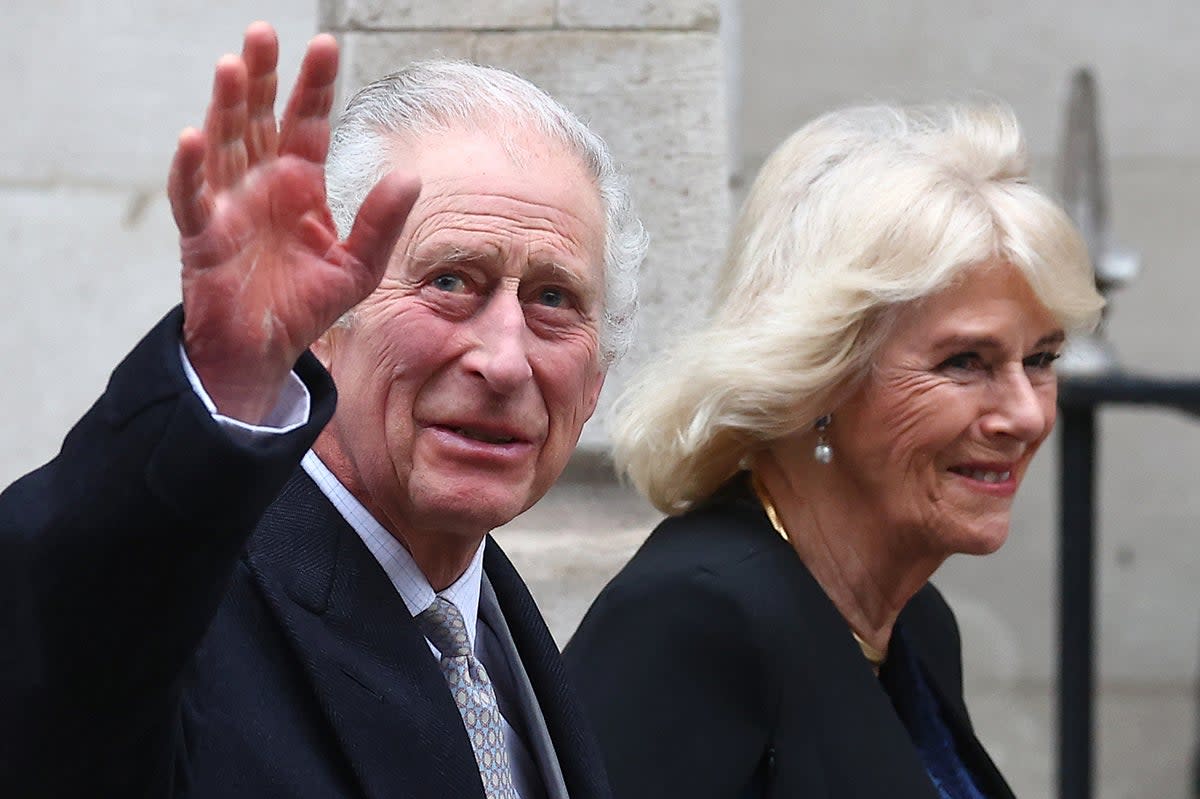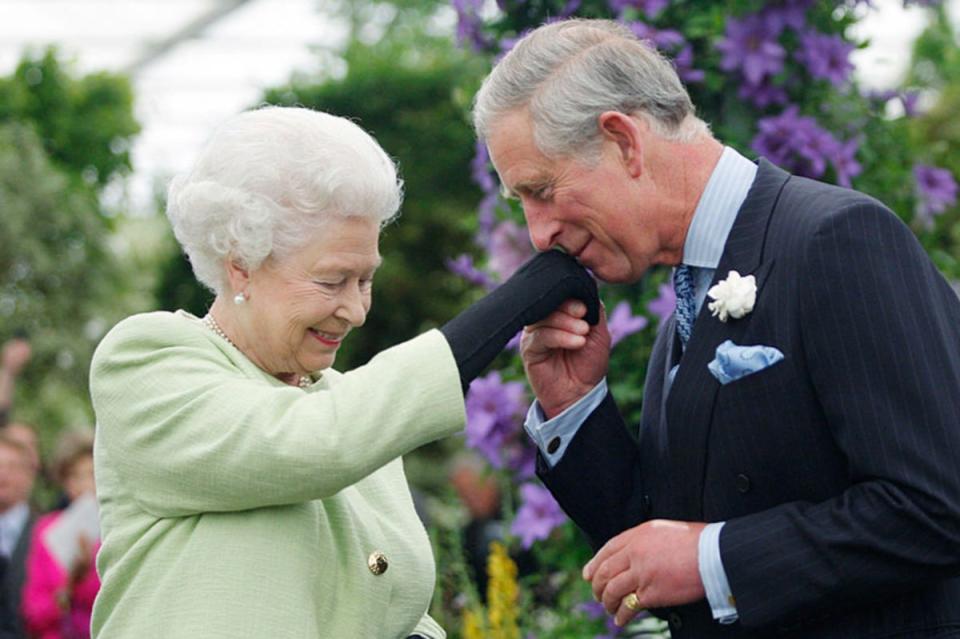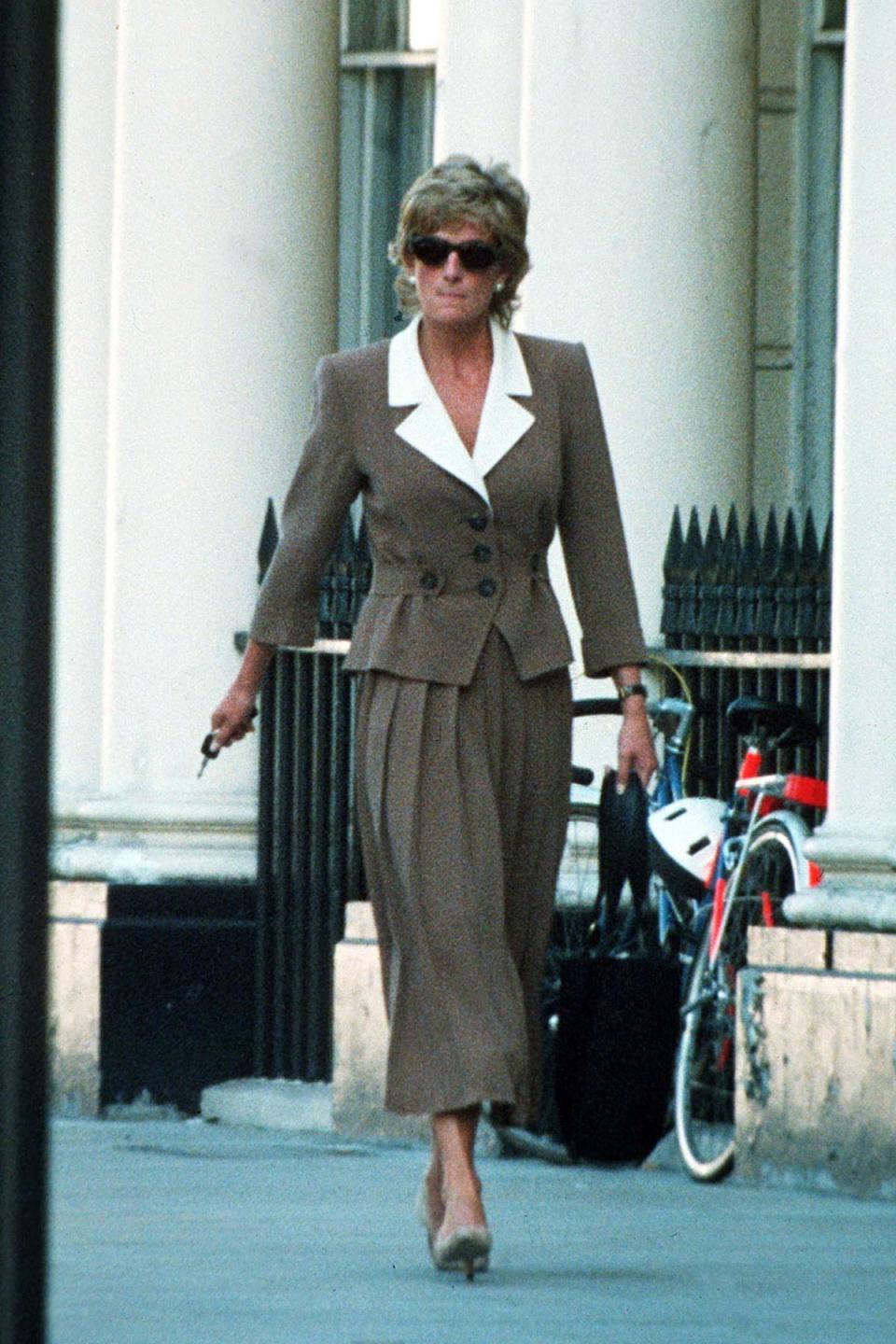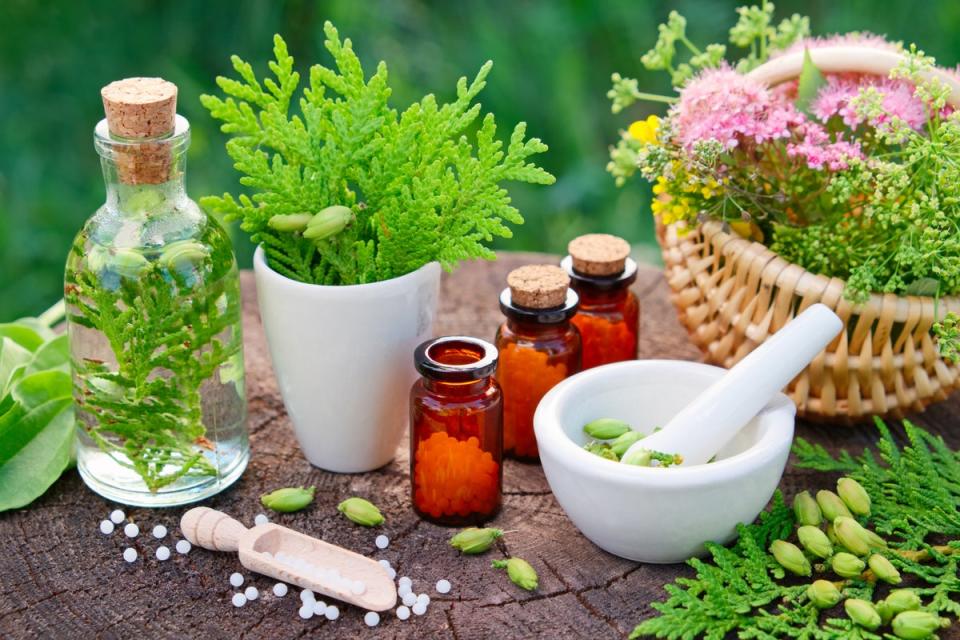Orchid essences, oxygen chambers and lots of crying: Have the royals got the right idea about homeopathy?

I have just taken two drops of “Secret Wisdom” directly into my mouth before bed – it was prescribed by a homeopath to give me “deep inner stillness”. I’ve been told it’s derived from orchids, and will apparently help me cope with stress and anxiety. It may be nonsense, but I’ve been feeling so overwhelmed and close to burnout that I’d honestly give anything a go.
I’ve been inspired by King Charles, who has recently – if controversially – appointed a pro-homeopathy doctor with an integrative approach to medicine as head of the royal household’s team of medics. It still remains to be seen how much of a role complementary medicine will play alongside conventional treatment in the monarch’s dealing with an unspecified form of cancer – but the King is a known fan, having openly supported its use in the NHS. He also advocates homeopathy not just for humans, but for animals, too.
Campaigners – such as Michael Marshall, project director of the Good Thinking Society that challenges pseudo-science – claim Dr Michael Dixon’s new role is “inappropriate” and “worrying”. Reports have claimed that Dixon believes Christian healers may be able to help the chronically ill, that the herbal medicine known as “devil’s claw” can fix frozen shoulders, and that nothing is better for impotence than some horny goat weed.
“In any other field, we would expect the products we buy to be proven to do what they say they can do,” says Marshall, whose mission is to make the public aware of the dangers of alternative medicine. “When it comes to complementary and alternative medicine, we find an awful lot of impressive-sounding claims, but no reliable evidence that any of them are true.” He also says that “treatments that don’t work are a waste of time and money – and people who are ill can rarely afford to waste either. On top of that, the redirection away from effective treatments can be harmful”.
Buckingham Palace, however, has moved to clarify Dr Dixon’s beliefs, writing in a statement: “Dr Dixon does not believe homeopathy can cure cancer. His position is that complementary therapies can sit alongside conventional therapies, provided they are safe, appropriate and evidence-based.”
I’m not sure what to believe, so I’ve turned up at Harley Street’s Hale Clinic – a pioneer in the field of integrative medicine that was opened by Charles in 1988 – with sessions booked back-to-back, as if I’m in for emergency resuscitation. Treatments combine conventional medical approaches with other traditional disciplines such as Ayurveda, TCM (Traditional Chinese Medicine). Complementary approaches, such as homeopathy and acupuncture, are also used to treat the patient holistically – in mind, body and spirit. It aims to identify the root causes of disease, with nutrition and lifestyle factors also playing a part.
Within minutes of talking to my new homeopath, I’m sobbing into a box of Kleenex. She’s worried if I take anything deeper on the homeopathic front, it might ‘unleash things’. I’m seeing crazy scenes from ‘The Omen’
I’m not a novice when it comes to this stuff. I’m aware of the latest craze for Lion’s Mane mushroom pills: supermodel Giselle Buchanan swears by them to help her focus and boost her energy levels. My mum friends are all-in, too, switching from Calpol to Bella Donna. I also once spent an absolute fortune on a famous Chinese acupuncturist and herbalist on Harley Street when I was desperate to get pregnant. I ended up brewing bespoke herbs in a huge Le Creuset pot to drink twice a day to get “good eggs” for IVF. I felt as if I was doing something positive. I can’t help but wonder if it was just the placebo effect at work, though. But who really knows?
Edzard Ernst, emeritus professor at the University of Exeter and author of 2023’s Charles the Alternative King, is an expert on complementary medicine, and points out to me that complementary medicine includes “more than 400 different treatments”. “Most are useless,” he says, “but some have potential. Typically [homeopathic remedies] are so diluted that the end product contains no active ingredient, and that, of course, means they are pure placebos.”
He says there are now several studies that have shown why some people feel better after a homeopathic treatment. “It basically boils down to two elements; firstly, the placebo effect, which means that we often do get better when we expect and hope to get better; secondly the empathic encounter and tender loving care from a homepath.”
Ernst, who said that King Charles’s appointment of a pro-homeopathic doctor showed he was a “promoter of quackery” and “an enemy of progress in healthcare”, says that the danger in promoting these types of complementary treatments is that “a patient takes the often irresponsible claims made for them seriously”. He continues: “Either the patient would not receive the best treatment available, and it would prolong suffering. Or, in the worst case scenario, they might even hasten the person’s death.”

Herbalism, however, is the area where, he claims, “we find the most promising therapies”. “St John’s wort, for instance, is an effective treatment for mild to moderate depression, and several other herbal remedies are supported by reasonably sound evidence.” Faith healing, on the other hand, he says “is biologically implausible”. “There is no scientifically explicable way it can work, and more importantly, the reliable clinical trials that have tested its efficiency have failed to show that it works beyond placebo.”
Whether it’s all just a placebo effect or not, I believe it’s worth a shot. YouGov found in 2021 that around half of Britons were “open-minded” about homeopathy. The practice is largely based on the principle that like cures like. The NHS defines it as the belief that “a substance that causes certain symptoms can also help to remove those symptoms” – but they stopped funding it in 2017, claiming that homeopathic remedies are at best a placebo, and a misuse of scarce funds.
In 2022, the global market for homeopathic products was valued at $11bn (£8.6bn). The late Queen and Queen Mother all had homeopathic doctors. Charles and Camilla are also known to visit the holistic health retreat Soukya in India, a place that integrates the 5,000-year-old practice of Ayurvedic medicine, as well as homeopathy and naturopathy. In Prince Harry’s Spare, he reported that Meghan offered Kate “homeopathic cure-alls… oregano oil and turmeric” to treat William’s cold when Kate announced that her husband had never taken unconventional remedies before. There is, however, something inherently blue-blooded about homeopathy.
Long before King Charles fell in love with homeopathy, his ancestors were behind it. Edward VIII was patron of the London Homeopathic Hospital – it was George VI who added “Royal” to the hospital’s title. It was also reported that the late Queen, who was patron of the institution, now called The Royal London Hospital for Integrated Medicine, always travelled with a case of remedies – “she enjoyed the sense of security”, according to the Faculty of Homeopathy, whose patron is now King Charles.

Dr Elizabeth Thompson, a former NHS consultant and homeopathic physician, who founded the National Centre for Integrative Medicine (NCIM) in 2014, is passionate about transforming healthcare “to a broader, more inclusive model,” she tells me. “One that includes conventional, holistic and lifestyle approaches, [and has] wellness and choice at its centre. Change is happening.”
However, there is still a stigma attached to a more integrative approach. “The recent controversy over King Charles’s health choices is part of the problem we have in healthcare,” Dr Thompson says, “where when someone finds holistic approaches useful, they are criticised or dissuaded from using them, even though they might be low-cost, gentle inventions that support rebalancing and activating health.”
I have already been assessed via Zoom by top integrative doctor Dr Rajendra Sharma (at a cost of £435), who treated Tina Turner. He has suggested counselling with a psychotherapist “focusing on a strong spiritual aspect” – among other things like yoga, Tai chi, and Qi Gong. The list of herbal and homeopathic medications that he suggests I consider include L-72, a homeopathic general stress formula for fear, anxiety, and general low mood – and is probably the closest that homeopathy gets to Prozac. I’m also going to take the supplement Adreno Complex, which supports the build-up of cortisol – you need that to help your body cope better with stress. It’s packed with powerful adaptogens such as Reishi mushrooms, licorice, Rhodiola, and Siberian Ginseng.
The homeopath Kamli Kaul (£250 for a first consultation) is fine-tuning his recommendations for me. She was drafted in earlier than scheduled for our in-person appointment, after I suffered a panic attack in their submarine-like Hyperbaric oxygen therapy tank. It pumps out 95 to 98 per cent pure oxygen that is absorbed at the cellular level via a face mask or cannula (from £120 for 60 mins). I’m told this can aid deep sleep and depression – and is a favourite with celebrities for boosting collagen. Kaul could sense the extreme panic I was in, and wants to hold back the L-72 and use “the more gentle” orchid flower essences that “heal on a vibrational level”.
Along with “Secret Wisdom” (Phragmipedium wallisii), which is “best taken with the intention of meditation and self-reflection”, she makes up a combo of orchid essences to help ground me: “Furnace of Life”, “Necklace of Beauty” and “Clarity of Spirit”. “They are like angels to help us deal with the here and now,” she explains.

Within minutes of talking to her, I’m sobbing into a box of Kleenex. She’s worried if I take anything deeper on the homeopathic front, it might “unleash things”. I’m seeing crazy scenes from The Omen. “Part of being a good mum is loving yourself, healing yourself and giving yourself time and space to do that,” Kaul tells me. “When did you last do this?” I tell her it’s been at least seven years – that’s when I had my first child.
I’m already feeling better when I’m ushered in for a one-hour appointment with faith healer John McGrath (£195). He offers in-person and online healing (from £195 for one hour/ £110 online). As he “realigns my seven chakras with the seven layers of my auric field,” I feel deeply relaxed. McGrath is “clairsentient”, he tells me – so he feels energy and what is blocking it. He explains that every person’s auric field – defined as a coloured emanation that’s said to enclose the human body – “extends two metres from the body”. It means that there’s a lot of hand waving above my body as he gets my energy flowing during our session.
I feel like a new person is emerging – it’s me, pre-children. Since I’m having a whole morning of relaxation and spiritual pampering, a foreign activity in itself for a hectic single mum like me, it’s hardly surprising. I even find sitting in a dentist’s chair relaxing nowadays. It may well be the placebo effect – but I’m not here for a life-threatening illness. It’s a bit like having a deep power nap. And, yes, I did doze off.
I can’t sit with the feeling for too long, though, as I’m zipped into a tent-like oxygen chamber for an hour. There is no need to panic if you’re prone to claustrophobia – there are three portholes and a deckchair inside to sit on. Finally, I’m bundled into myofascial release therapy with Corinne Zeiderman (from £115), in which she applies light pressure by hand to release tension within the tissues of the body.
Beena Menon, who took over the Hale Clinic 10 years ago, says her clinic is moving more towards “women’s health”. Even the menopause can be tackled with the integrative approach, she claims, rather than the one-size-fits-all all HRT that is given on the NHS. “[Complementary medicine] has got bad press,” she says. “That it’s so expensive, but that’s because we live in a society that is blessed with free NHS healthcare. If you follow the protocols given from the first consultation, you can keep a homeopathic remedy in your cupboard for years. Many people get better in the first three sessions of a treatment – and can stock up on remedies, or come in for a boost now and again.”
I have only been on homeopathic and herbal remedies for a week, having refused the herbal sleeping drought Dormeasan, but I already feel more focused and less broken. If I had more money than sense, I could indefinitely continue my quest for harmony at the clinic. But without the budget for numerous treatments, this was enough – an intense booster session to get me back on track.

